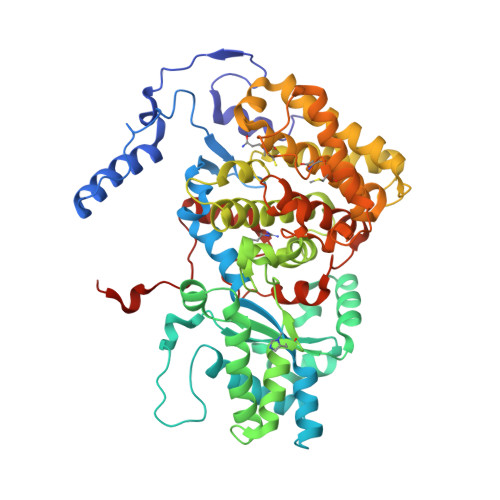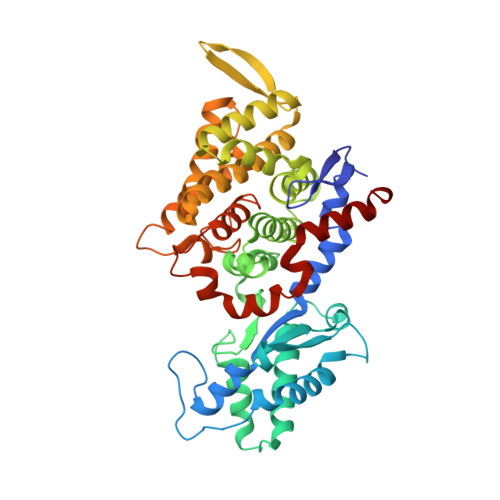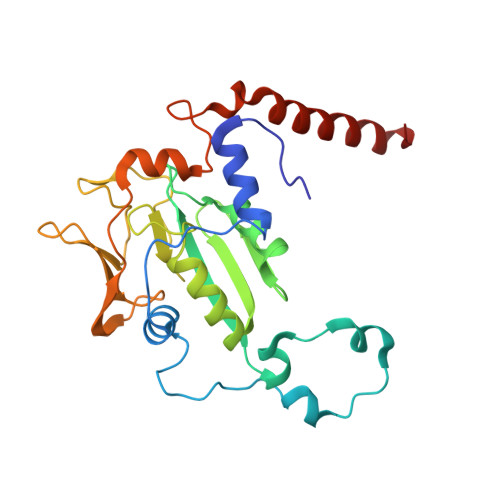Didehydroaspartate Modification in Methyl-Coenzyme M Reductase Catalyzing Methane Formation.
Wagner, T., Kahnt, J., Ermler, U., Shima, S.(2016) Angew Chem Int Ed Engl 55: 10630
- PubMed: 27467699
- DOI: https://doi.org/10.1002/anie.201603882
- Primary Citation of Related Structures:
5A0Y, 5A8K, 5A8R, 5A8W - PubMed Abstract:
All methanogenic and methanotrophic archaea known to date contain methyl-coenzyme?M reductase (MCR) that catalyzes the reversible reduction of methyl-coenzyme?M to methane. This enzyme contains the nickel porphinoid?F430 as a prosthetic group and, highly conserved, a thioglycine and four methylated amino acid residues near the active site. We describe herein the presence of a novel post-translationally modified amino acid, didehydroaspartate, adjacent to the thioglycine as revealed by mass spectrometry and high-resolution X-ray crystallography. Upon chemical reduction, the didehydroaspartate residue was converted into aspartate. Didehydroaspartate was found in MCR?I and?II from Methanothermobacter marburgensis and in MCR of phylogenetically distantly related Methanosarcina barkeri but not in MCR?I and?II of Methanothermobacter wolfeii, which indicates that didehydroaspartate is dispensable but might have a role in fine-tuning the active site to increase the catalytic efficiency.
Organizational Affiliation:
Max-Planck-Institut f¨¹r terrestrische Mikrobiologie, Karl-von-Frisch-Strasse 10, 35043, Marburg, Germany.































